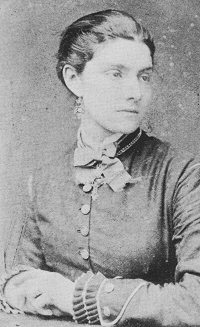 Tell me if you recognize this story:
Tell me if you recognize this story:
During a war, some children are sent to a relative’s house in London while the father is away at war and the mother is sick. While there, they come by a piece of jewelry which magically takes them to other places. In one of these places, they encounter a Queen who knows magical words of power.
Through a series of circumstances, when the children return to London, the Queen comes with them and causes great havoc in London.
After they get her out of London and back into her own land, they journey to other lands where they witness the rise and fall of nations and empires. They finally return home, and their father returns, and the mother gets well, and all is at peace.
If you said, “Oh, that is The Magician’s Nephew by C. S. Lewis” you’d be wrong.
 It is actually The Story of the Amulet by Edith Nesbit. There is a lot more to this story than what I told above, but it was published by Nesbit in 1906. The Magician’s Nephew, written by C. S. Lewis in 1955 contains several elements that are remarkably similar, and Lewis read Nesbit’s stories when he was a child.
It is actually The Story of the Amulet by Edith Nesbit. There is a lot more to this story than what I told above, but it was published by Nesbit in 1906. The Magician’s Nephew, written by C. S. Lewis in 1955 contains several elements that are remarkably similar, and Lewis read Nesbit’s stories when he was a child.
Not only this, but my favorite story by C. S. Lewis (and his as well), Till We Have Faces, turns out to be a slightly modified version of the Greek myth, Cupid and Psyche.
So apparently, if you want to write like C. S. Lewis, find some old stories that barely anyone has ever heard of, and then retell them, changing some of the details and names. Some might call this plagiarism, but it really isn’t, if the book you are “retelling” is now in the public domain.
Do you have a problem with C. S. Lewis doing this?
I did at first.
Until I sat back and thought about it. Then I realized that there are really only three stories anyway, and all stories are a variation on them.
Three Types of Plots
Redemptive Violence
Redemptive Violence is the idea that what is wrong with the world can be fixed with violence toward those who made it wrong. Most action and western movies fall into this theme.
Returning to Utopia
Returning to Utopia is the idea that through some method of leaving society (time travel, magic, pilgrimage, peaceful revolution, changing laws, etc), the world can once again become the way it should be. A lot of sci-fi movies fall into this category.
Resurrection of the Dead
A person is on the brink of death (or ruining their life, living without purpose, etc.), and something happens to bring new meaning and significance to their life. Nearly all love stories fall into this category.
Notice that all three are about getting back something that was lost, it is just that the methods are different. The first uses violence, the second uses something otherworldly or supernatural, the third uses love, generally from others.
What type of story do you enjoy the most?
What type of story, do you think, is the Bible?




Lewis also copied major elements, including the spacecraft, in “Out of the Silent Planet” almost straight from “The First Men in the Moon” by H.G. Wells (1901). I noticed this myself but I note that Wikipedia has a whole section on this link, which Lewis himself acknowledged.
Peter,
This is amazing!
Well, Lewis is still a great thinker and writer! And it give me hope. Not everything has to come out of my own head, fresh and original with me.
That reminds me that I still want to order “Into The Wardrobe”
Perhaps Lewis was more a theologian than a storyteller. Perhaps he wished to convey truths in a fashion deemed acceptable to his contemporaries, such as a child’s story, for example. Since he was not so good at fantasy, he borrowed story ideas from existing stories, peppered them with the truths he wished to convey, and released them to people who would not have accepted the plain unvarnished truth.
If I were to ever write stories that contained uncomfortable truths I think I should consider Lewis’ method. I love a good mystery. How about you, Jeremy?
You did very good Jeremy! Did I answer your question?http://www.graceground.com
Mysteries are the spice of life. I think. Sometimes they make you go crazy.
I see what you mean though. He did change several key details.
This mystery won’t make you go crazy. Lewis’ stories spoke to people on many levels. I still remember the woman who refused to believe me when I told her the Chronicles were more than mere children’s stories! Perhaps there is more, much more. Might that also be a clue to the Bible and to the life of Jesus? (Might Lewis intentionally have been hinting at such?) Perhaps our grasp on reality is not quite so tight as we like to pretend.
The only way I could write like C.S. Lewis is to grab an excerpt from one of his books and slap some quotes around it .. 🙂
Hilarious!
Wait, doesn’t everyone do that? 😉
Excellent! I think this betrays another truth about artists — they all steal. Nothing new under the sun.
Not you, Jeff! 😉
Thanks for the mention today.
I love all your writing tips on your site. Keep them coming!
I love stories that end with redemption. Now, that’s not to say that all stories should have a happy ending. But redemption is important to me. Even if that redemption doesn’t bring happiness. Does that make sense?
The Bible incorporates a little of each type of story you listed. The violence of the cross led to our redemption and the resurrection of, not only Christ, but us from death to sin.
Susie,
Yes, the Bible does incorporate all three. And stories that end with redemption are the best. I believe that nearly everything is redeemable. That’s how great God is!
As a side note, I didn’t explain the three story types very well, but based on my understanding, I don’t put the death on the cross under redemptive violence, unless it is God using violence against Jesus, which isn’t quite what happened on the cross…
Oh, dear. You’re right. That’s not the kind of violence I meant about the cross. No, not God using violence…but Jesus enduring the violence of sin in order to redeem us. Does that make more sense?
I appreciate this… as a pastor I listen to a lot of sermons. Whether to listen for a pastor’s methods or while attending conferences… or just for my own growth. I am always worried about teaching another pastor’s idea and not giving them credit.
I think that’s normal for preachers, right? As long as you don’t read your sermon word for word from somebody else, I think everyone understands!
Yea, you’re right but you’d be surprised how many pastors out there do just what you describe. I’ve heard first person accounts of guys who download the sermon of the nationally acclaimed pastor (you choose the name) on Saturday night to read on Sunday morning. So, I’m being a bit of an extreme deconstructionist with my fear but I guess we all do that in different areas of life. 🙂
I’ve heard of this happening too.
…Confession time… One time on Mother’s day, I preached a John MacArthur sermon verbatim.
Sorry, John!
…And thanks John!
It does happen. And as Susie pointed out, I think it’s okay as long as we “make it our own” infusing it with our own insights, details, personality, etc.
I’ve gone to sermonindex.com at least twice in a pinch. I tried to change it to my style, but it became awkward…someone even commented once..he said it wasn’t as funny as my usual sermons! Caught!
Your post reminded me of this, and I thought you might like it too.
There are two novels that can change a bookish fourteen-year old’s life: The Lord of the Rings and Atlas Shrugged. One is a childish fantasy that often engenders a lifelong obsession with its unbelievable heroes, leading to an emotionally stunted, socially crippled adulthood, unable to deal with the real world. The other, of course, involves orcs.
Ayn Rand is SO early 21st century. Where have you been? It’s no longer cool to read Ayn Rand on your lunch break. She’s been bumped by George Martin, A Game of Thrones, a 700 page mammoth of a work. From what I hear, it’s pretty good. 🙂
Game of Thrones is ten years old at least. I read it about 11 years ago. It is is great series, but very… hmmm… sexually and violently graphic. Let’s leave it at that…
A great set of stories though…. Very well told.
Huh, I never knew that about Lewis. I think this is especially true with music. So many songs sound so similar. There’s rarely anything new under the sun 🙂
Regina Spekter is prety good. I usually stick with Progressive or independent artists 🙂
@Jeremy, I didn’t know that about Game of Thrones. I don’t read novels too much anymore..I read non-fiction, but thanks for the info
Jeremy,
Interesting subject. Earlier this year I posted on plagiarism as well.
http://rethinkingfaithandchurch.rochow.ca/2011/05/what-constitutes-plagiarism.html
Blessings
Will,
I will come check it out.
The main story of Lion, Witch and Wardrobe is the central story of the Bible, not just an allegory. The whole plot comes from the story of Jesus. That’s plagiarism.
Btw, it is one of my favorite stories.